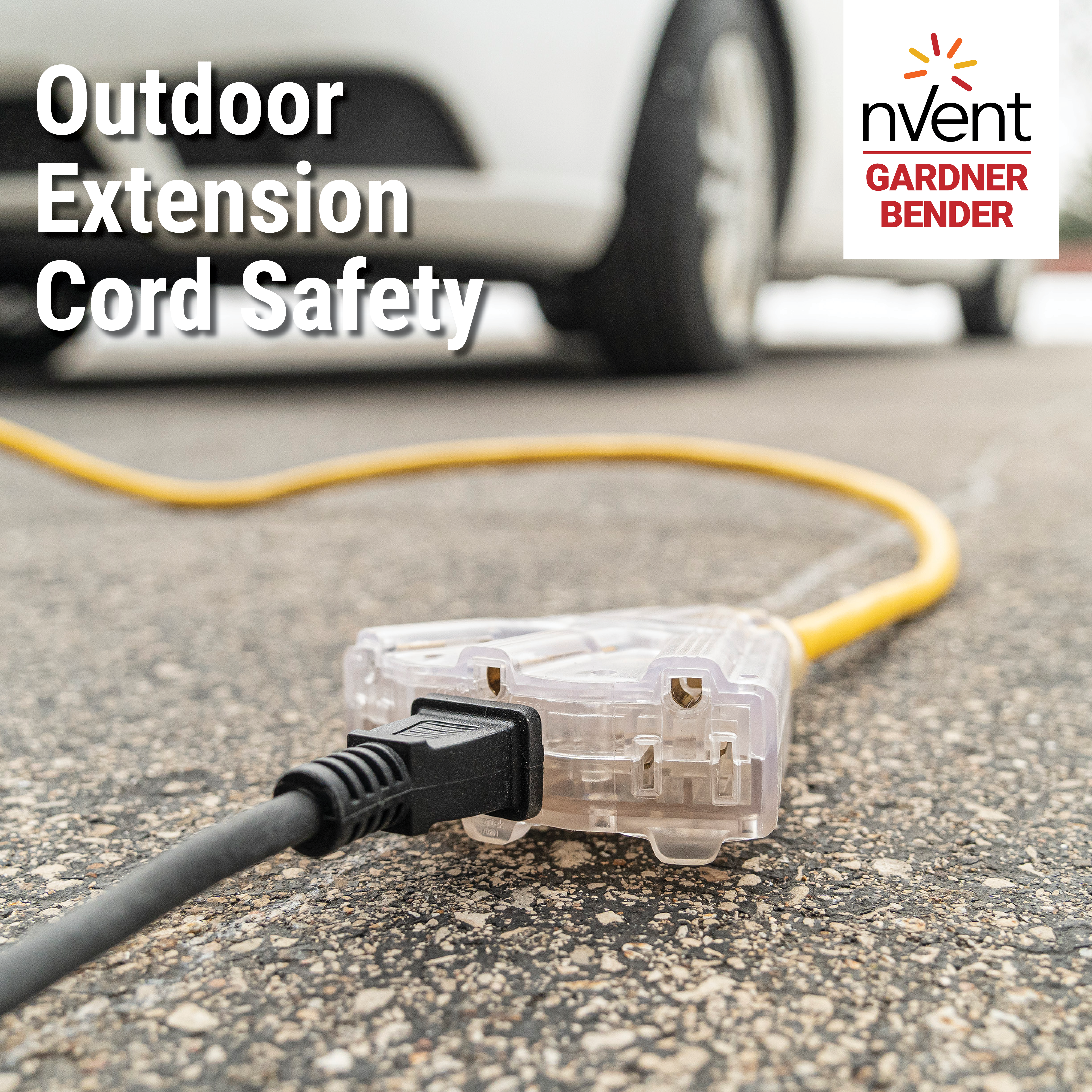
Outdoor Extension Cord Safety
Outdoor extension cords can be incredibly useful, but it's important to use them safely to prevent electrical hazards. Here are some tips:
-
Choose the Right Cord: Ensure that you're using an extension cord specifically designed for outdoor use. These cords are typically labeled as "for outdoor use" or have an "SJTW" or "SJOW" rating, indicating they are suitable for wet conditions.
-
Inspect Regularly: Before each use, inspect the cord for any signs of damage such as cuts, fraying, or exposed wires. Damaged cords should be replaced immediately to prevent electrical shocks or fires.
-
Proper Wattage: Make sure the extension cord's wattage rating matches or exceeds the wattage of the devices you intend to use it with. Overloading the cord can lead to overheating and potential fire hazards.
-
Keep it Dry: Even though outdoor extension cords are designed to withstand moisture to some extent, it's still crucial to keep them as dry as possible. Avoid placing them in puddles or areas where water may accumulate.
-
Avoid Pinching or Crushing: Ensure the cord is not pinched or crushed by heavy objects, doors, windows, or furniture. This can damage the insulation and expose wires, increasing the risk of electrical shock or fire.
-
Unplug When Not in Use: When you're finished using the extension cord, always unplug it from the power source. Leaving it plugged in unnecessarily increases the risk of damage and accidents.
-
Use Ground Fault Circuit Interrupters (GFCIs): Consider using extension cords with built-in GFCIs, especially when using them outdoors. GFCIs can help protect against electric shock by quickly shutting off power if a ground fault is detected.
-
Avoid Overloading Outlets: Don't plug too many devices into a single extension cord or outlet. Overloading can lead to overheating and potentially cause a fire. Use power strips or multiple extension cords if needed, distributing the load safely.
-
Route Cords Safely: Avoid running extension cords across walkways or high-traffic areas where they can be tripped over. Use cable protectors or covers if cords must cross pathways.
-
Store Properly: When not in use, store outdoor extension cords indoors in a dry area. Proper storage helps prevent damage from sunlight, moisture, or pests.
By following these safety tips, you can ensure that your outdoor extension cords are used safely and effectively for your outdoor activities and projects.
This article provides general information only and should not be relied upon as professional advice. While we aim for accuracy, we make no guarantees. We are not liable for any loss or damage arising from its use. Consult qualified professionals for specific advice.











